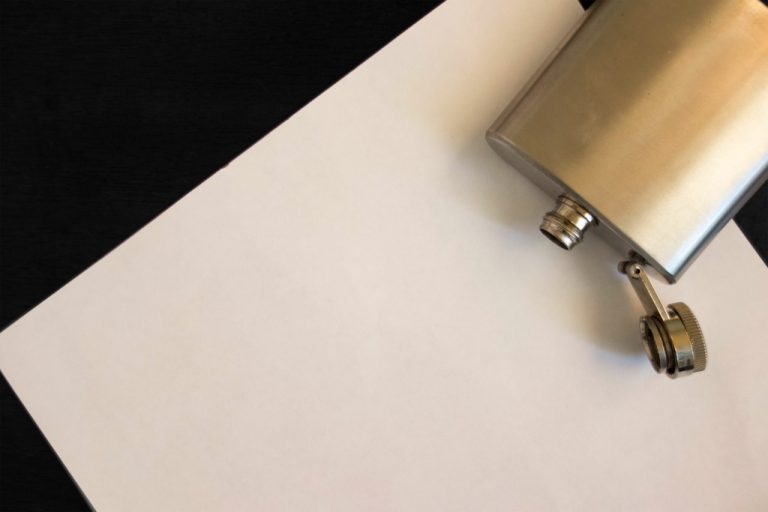Early symptoms of alcohol withdrawal usually start about six hours after the last drink. Early symptoms include headache, sweating, tremors, vomiting and difficulty concentrating. Dr. Streem suggests starting with the World Health Organization’s Alcohol Use Disorders Identification Test (AUDIT).
- Tapering can help you overcome alcohol dependence, which is a side effect of chronic alcohol use that causes cravings and withdrawal.
- Whatever method you use to taper down, your plan should also be approved and monitored by a healthcare profession to ensure your safety.
- You should not begin a tapering plan before talking to your doctor.
- Making a schedule to slowly reduce your alcohol intake is a safe way to taper off the substance.
- The reason for this is that alcohol withdrawal symptoms can quickly snowball and worsen.
Alcohol Withdrawal
- This medical supervision allows for some patients to quit drinking cold-turkey without compromising safety.
- If you are struggling with severe alcohol use or addiction, tapering off alcohol at home may not be a safe option.
- For others, simply cutting back the number of drinks can bring on alcohol withdrawal symptoms.
- You may want to talk with a loved one or therapist about why it happened and what you can do differently next time.
- Switching to beer from hard liquor is safer because it is easier to control the amount of beer that is consumed and is harder to binge drink.
Here’s a specific plan to guide you through the initial stages of your journey, helping you take control of your relationship with alcohol. Central nervous system depressants are a class of drugs that includes several prescription medications like benzodiazepines, barbiturates, and sedative-hypnotics. Depressants are so-called because they depress activity in the central nervous system. In other words, they slow down chemical communication in the brain and body. This is what causes many of the positive and negative effects of drinking, and it causes the effects of prescription depressants. Alcohol tapering is definitely possible, but the question of whether or not it works is not quite as straightforward.
Tapering Off Alcohol vs. Going Cold Turkey
This can set you up for a safe and effective detox and put you in a good position to continue your recovery in rehab. Professional guidance is often necessary to navigate the complexities of alcohol tapering. A healthcare provider can tailor the tapering schedule to the individual’s needs, considering factors like dependence and overall health. They can also provide support and resources to manage withdrawal symptoms and address any complications that arise. Remember, tapering off alcohol is a highly individualized process, and what works for one person may not work for another.
Why Do You Experience Withdrawal Symptoms?
Then come up with a reduction rate you think will be safe, and that you can stick to. Discover some tips to improve your mental wellbeing, including the five ways to wellbeing. Most pills bought as diazepam (Valium), temazepam or alprazolam (Xanax) actually contain other substances.
Navigating Common Challenges in Alcohol Tapering

Cold turkey is a common slang term for quitting alcohol (or any substance) all at once. Tapering or weaning means ramping down your alcohol use until you get to zero—or to a more moderate level of drinking that you prefer. That said, tapering off alcohol doesn’t completely eliminate withdrawal symptoms. Alcohol withdrawal is dangerous and it’s important to be careful throughout the process. Vitamins B1 (thiamine), B9 (folate), B12 and C are often recommended to aid recovery.

Medications are often used to manage the symptoms of alcohol withdrawal safely. Benzodiazepines, such as diazepam (Valium) or lorazepam (Ativan), are commonly prescribed to reduce withdrawal Top 5 Advantages of Staying in a Sober Living House symptoms and prevent complications like seizures. Other medications might include anticonvulsants, anti-nausea drugs and sleep aids, depending on individual symptoms and medical history.

Alcohol Withdrawal Symptoms
Treatment is the best way to ensure long-term abstinence from alcohol. This is especially true if you are suffering from an alcohol use disorder. Addiction alters the chemical balance in a person’s brain, making it extremely difficult https://fintedex.com/top-5-advantages-of-staying-in-a-sober-living-house/ to quit drinking alcohol on one’s own. Maybe they don’t have peer support or maybe their alcohol addiction is too severe. Being surrounded by triggers can make it extremely difficult to stay on track and avoid overdoing it on alcohol.
- I had lost my appetite and was very depressed, which is pretty standard for big time alcoholics.
- This schedule is a guideline and should be adjusted based on individual needs and responses to tapering.
- For this reason, it’s generally best to avoid quitting abruptly, or at bare minimum speak with a doctor first and have someone looking out for you.
- All the same, “a quick drink” often turns into three or four drinks.
Alcohol can stay in your system for several hours depending on how much you drink. Once it begins to leave your body, early symptoms of withdrawal begin. When you are detoxing from alcohol at a rehab center, nurses and doctors monitor vital signs, provide adequate nourishment and treat complications if they occur. Tapering can help you overcome alcohol dependence, which is a side effect of chronic alcohol use that causes cravings and withdrawal. Detox doesn’t treat addiction, which is a disease characterized by compulsive behaviors, such as chronic alcohol use. About 10 percent of people experience more severe symptoms, such as fever, fast breathing, and heavy sweating.
Also, learn to cope with and avoid situations that might cause you to want to drink more. Further, the severity of withdrawal symptoms can cause a person to resort back to drinking alcohol to relieve any symptoms. However, doing so without the guidance of a physician, can complicate tapering and ultimately delay when, if ever, sobriety is reached. Gradually reducing alcohol consumption can be achieved through a substitution taper.
